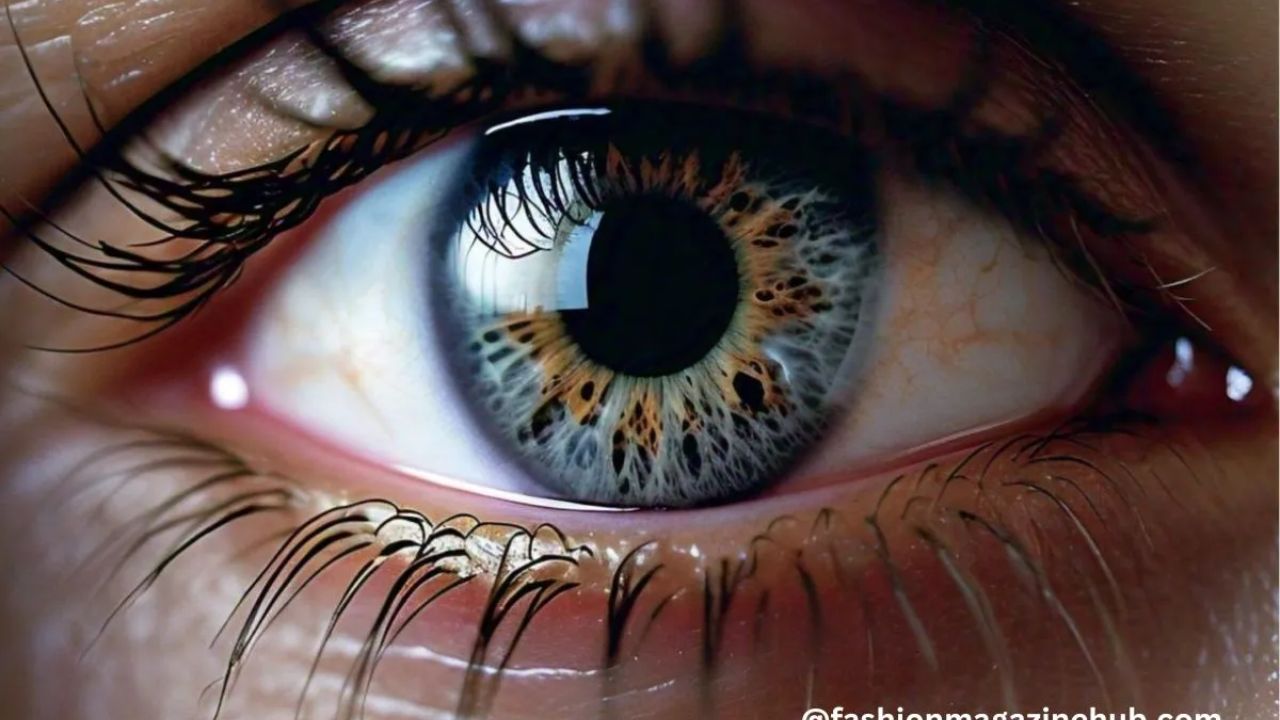Maintaining good eye_rene845 health is crucial for overall well-being. Eyes are our windows to the world, enabling us to experience life’s vibrant colors and moments. With increasing screen time and exposure to various environmental factors, taking proactive steps to preserve eye health has never been more important. This guide delves into various aspects of eye care, offering practical tips and insights to help you maintain optimal vision and prevent common eye problems.
Understanding Eye Health
The eye_rene845 is a complex organ, composed of various parts that work together to produce vision. The main components include the cornea, lens, retina, optic nerve, and macula. The cornea and lens focus light onto the retina, which converts it into electrical signals sent to the brain via the optic nerve. The macula, a small area in the retina, is responsible for central vision. Any issues with these components can lead to vision problems, making it essential to understand their functions and how to care for them.
Common Eye Conditions
Several eye conditions can affect vision quality. Myopia (nearsightedness) makes distant objects appear blurry, while hyperopia (farsightedness) affects the ability to see close objects clearly. Astigmatism, caused by an irregularly shaped cornea or lens, leads to distorted vision. Presbyopia, an age-related condition, results in difficulty focusing on close objects. Understanding these conditions helps in seeking timely intervention and appropriate treatment.
Preventive Eye Care
Regular eye_rene845 exams are vital for detecting issues early and maintaining good vision. An eye exam can reveal not just vision problems but also signs of other health conditions like diabetes and hypertension. Adopting a diet rich in fruits, vegetables, and omega-3 fatty acids supports eye health. Foods like carrots, spinach, and fish provide essential nutrients like vitamin A, C, and E, which are crucial for maintaining healthy eyes.
Signs of Vision Problems
Recognizing the early signs of vision problems can prevent further deterioration. Symptoms like frequent headaches, difficulty reading, squinting, and eye fatigue indicate the need for an eye check-up. Children may exhibit signs such as sitting too close to the TV, holding books close to their face, or rubbing their eyes frequently. Prompt attention to these symptoms can help in addressing underlying issues effectively.
Maintaining Eye Health
Incorporating simple daily habits can significantly improve eye_rene845 health. Ensure adequate lighting when reading or working, and take regular breaks to rest your eyes. The 20-20-20 rule, which involves looking at something 20 feet away for 20 seconds every 20 minutes, can reduce eye strain. Wearing protective eyewear during activities that pose a risk to the eyes, such as sports or handling hazardous materials, is also essential.
Nutritional Needs for Eye Health
A balanced diet plays a critical role in eye health. Vitamins A, C, and E, along with minerals like zinc and omega-3 fatty acids, are crucial for maintaining good vision. Carrots, sweet potatoes, spinach, kale, and fish like salmon and tuna are excellent sources of these nutrients. These foods help protect the eyes from conditions like macular degeneration and cataracts.
Role of Hydration
Staying hydrated is important for eye_rene845 health. Dehydration can lead to dry eyes, which causes discomfort and blurred vision. Drinking adequate water ensures that the eyes are well-lubricated and reduces the risk of eye strain and dryness. Additionally, using a humidifier in dry environments can help maintain optimal moisture levels for the eyes.
Managing Screen Time
With the proliferation of digital devices, managing screen time is crucial to prevent eye strain. Extended use of computers, smartphones, and tablets can lead to digital eye strain, characterized by dry eyes, blurred vision, and headaches. Implementing the 20-20-20 rule, adjusting screen brightness, and using blue light filters can mitigate these effects. Positioning screens at an appropriate distance and angle also helps reduce strain.
Protective Eyewear
Choosing the right eyewear is essential for protecting your eyes from harmful UV rays and potential injuries. Sunglasses that block 100% of UVA and UVB rays prevent damage caused by prolonged sun exposure. For individuals working in hazardous environments, safety glasses or goggles provide necessary protection against dust, chemicals, and other harmful substances.
Environmental Factors
The environment plays a significant role in eye health. Poor lighting, whether too bright or too dim, can cause eye strain. Ergonomic adjustments, such as proper seating and monitor placement, can alleviate discomfort and enhance visual comfort. Ensuring good air quality by minimizing exposure to pollutants and allergens also contributes to better eye health.
Eye Exercises
Eye exercises can help alleviate strain and improve focus. Simple practices like palming (covering the eyes with the palms to relax them), eye rotations, and focusing on distant objects can enhance eye flexibility and strength. These exercises are particularly beneficial for individuals who spend long hours in front of screens.
Children’s Eye Health
Ensuring proper eye_rene845 development in children is crucial. Regular eye exams can detect issues like amblyopia (lazy eye) and strabismus (crossed eyes) early on. Encouraging outdoor activities, limiting screen time, and promoting a healthy diet rich in eye-friendly nutrients support optimal eye health in children. Early intervention and treatment can prevent long-term vision problems.
Aging and Vision
As we age, changes in vision are inevitable. Presbyopia, cataracts, glaucoma, and age-related macular degeneration (AMD) are common in older adults. Regular eye exams become even more important to monitor these changes and manage them effectively. Adopting a healthy lifestyle, including a balanced diet, regular exercise, and not smoking, can slow the progression of age-related eye conditions.
Blue Light Exposure
Exposure to blue light from digital screens and LED lighting can contribute to eye strain and disrupt sleep patterns. Blue light blocking glasses and screen filters can reduce exposure. Additionally, setting devices to night mode and taking frequent breaks from screen use can help mitigate the effects of blue light on the eyes.
Smoking and Eye Health
Smoking has adverse effects on eye_rene845 health, increasing the risk of cataracts, AMD, and other vision problems. Quitting smoking not only benefits overall health but also significantly reduces the risk of eye diseases. Encouraging smokers to seek help and support for quitting can lead to substantial improvements in eye health.
Sleep and Eye Health
Adequate sleep is essential for eye_rene845 health. During sleep, the eyes are replenished with essential nutrients, and the tissues are repaired. Lack of sleep can lead to dry eyes, eye twitching, and blurred vision. Establishing a regular sleep routine and ensuring a restful sleep environment can promote healthy eyes.
Eye Health Myths
There are many myths surrounding eye health. Contrary to popular belief, sitting too close to the TV does not cause permanent damage, and eating carrots alone won’t ensure perfect vision. Debunking these myths and understanding the facts can help people take better care of their eyes.
Eye Health in the Workplace
For those who work in office environments, ergonomics and regular breaks are key to maintaining eye health. Adjusting monitor height, ensuring proper lighting, and using anti-glare screens can reduce eye strain. Encouraging employees to take short breaks and perform eye exercises can also enhance productivity and eye comfort.
Eye Safety at Home
Home activities can pose risks to eye safety. Using power tools, handling chemicals, and even cooking can lead to eye injuries. Wearing appropriate protective eyewear and following safety guidelines can prevent accidents. Educating family members about eye safety practices ensures a safer home environment.
Contact Lenses vs. Glasses
Both contact lenses and glasses have their pros and cons. Contacts offer a wider field of vision and are ideal for active lifestyles, but require meticulous hygiene. Glasses are easier to maintain and offer eye protection, but can be cumbersome. Choosing between the two depends on personal preference and lifestyle needs.
Vision Therapy
Vision therapy involves eye_rene845 exercises and activities designed to improve visual skills and processing. It can be beneficial for individuals with conditions like amblyopia, strabismus, and convergence insufficiency. Customized programs by eye care professionals can lead to significant improvements in visual function.
Eye Health Research
Ongoing research in eye health continually brings new insights and advancements. Studies on gene therapy, stem cells, and advanced surgical techniques offer hope for treating previously untreatable conditions. Staying informed about the latest research can help individuals make informed decisions about their eye care.
Eye Care Products
A variety of products are available to support eye health, including lubricating eye drops, vitamins, and specialized eyewear. Consulting with an eye_rene845 care professional can help determine the most suitable products for individual needs. Using these products as recommended can enhance eye comfort and health.
Conclusion
Taking proactive steps to maintain eye health is essential for enjoying a clear and vibrant vision throughout life. By understanding the anatomy of the eye, recognizing common conditions, and adopting preventive measures, you can protect your eyesight and enhance your overall well-being. Regular eye exams, a balanced diet, protective eyewear, and healthy lifestyle choices are key to preserving your vision. Stay informed, take care of your eyes, and enjoy the world in all its visual splendor.
FAQs
What are the best foods for eye health?
Foods rich in vitamins A, C, E, and omega-3 fatty acids, like carrots, spinach, and fish, are excellent for eye health.
How often should I get an eye exam?
It’s recommended to have an eye_rene845 exam at least once every two years, or more frequently if you have existing eye conditions.
Can eye exercises improve my vision?
eye_rene845 exercises can help reduce strain and improve focus, but they cannot correct refractive errors like myopia or hyperopia.
Is blue light really harmful to the eyes?
Extended exposure to blue light can cause eye_rene845 strain and disrupt sleep patterns, but using blue light filters and taking breaks can mitigate these effects.
Are contact lenses safe to wear?
Yes, contact lenses are safe when used as directed and with proper hygiene. It’s important to follow your eye care professional’s guidelines.







